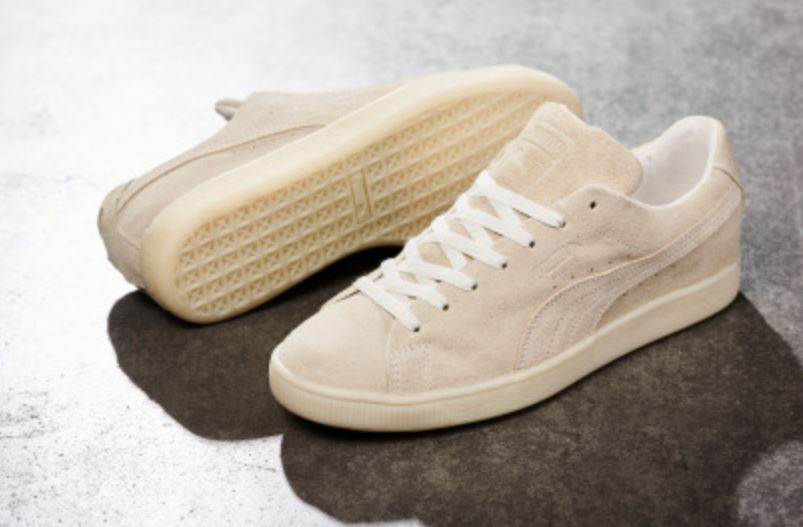Puma's new Circular Lab launches compostable suede experiment

The RE:SUEDE will be made from Zeology-tanned suede - which is made using a more sustainable tanning process and ensures better comfort for the wearer compared with other biodegradable materials, according to Puma - as well as biodegradable TPE and hemp fibres.
The tanning system is based on the mineral zeolite and is chrome-free, heavy metal-free and aldehyde-free.
The pilot will begin in January 2022, when 500 participants in Germany will wear the shoes for six months to test the durability, then send them back via a take-back infrastructure.
The shoes will then be subject to an industrial biodegradation process in a controlled environment at Valor Compostering, owned by Ortessa Groep, a family-run business of waste specialists in the Netherlands.
The goal is to determine if Grade A compost can be produced for agricultural use.
Puma’s first attempt to create a biodegradable sneaker in 2012, the InCycle collection, was discontinued after four seasons due to low demand and the need for further research and development.
The RE:SUEDE experiment is the first circular programme to launch under Puma’s Circular Lab – a new innovation hub, which is led by its sustainability and design experts.
Heiko Desens, Puma’s creative director, said: “In 2012, our circular ambition was bold but the technology wasn’t quite there. As they say, with every challenge there’s an opportunity - and we’ve continued to push ourselves to do better by applying our strengths as well as acknowledging and improving on our weaknesses.
“We hope that progress made during the RE:SUEDE experiment: ‘No Time For Waste‘ will help us continue to raise the bar in circularity testing – enabling our consumers to make better fashion choices in the future, so their sneakers can go ‘from Suede to Soil’, without compromising on product style or durability during ownership.”
The German brand aims to share the results with the industry to achieve an even bigger impact when it comes to addressing the challenge of waste management in the footwear industry.










